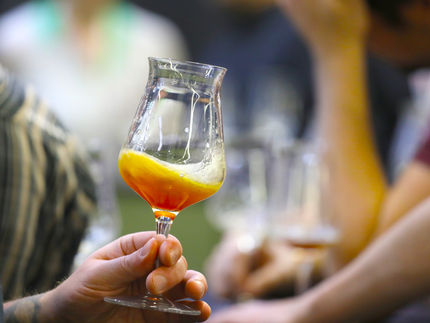Dry January: What are the opportunities and challenges for low/no alcohol brands?
The low/no alcohol trend is here to stay
Advertisement
Ahead of Dry January 2022, we explore why more of us are turning to low/no alcohol options, and what barriers drinks brands face to convince the rest of us to try these alternatives.

Photo by Michael Discenza on Unsplash
The low/no alcohol trend is here to stay
The moderation trend was present in the UK long before COVID-19, but the spotlight on health means younger Brits continued good intentions to cut back on alcohol post-pandemic. Mintel has been tracking the moderation trend since 2016. By 2019, a third of UK adults had moderated alcohol intake in the past year, and in 2020, 18% of UK adults had resolved to continue their good intentions to cut back on alcohol.
How have people’s attitudes changed towards low/no alcohol?
Drinkers perceive that the taste of low/no alcohol has improved over time. But, the sector is still relatively new, and low and no alcohol by volume (ABV) drinks face competition from soft drinks – especially those with mood benefits. Pioneers of low/no spirits like Seedlip made herbaceous white spirits substitutes, but more recently we are seeing twin alcohol-free versions of famous gin brands such as Gordon’s 0% and Tanqueray 0% – indicating that big brands expect low/no alcohol to grow.
Famous beer brands have also all jumped in including most recently Guinness Stout with a 0% ABV launch. This allows consumers to make a direct comparison with the alcoholic version and sets the bar high for product delivery.
The factors and demographics driving the low/no alcohol trend
The pandemic put a spotlight on health which has meant younger Brits planning to continue good intentions to cut back as pandemic subsides. Also, the moderation trend will accelerate across markets during a time of economic uncertainty. The UK economy seems to have dodged the bullet on a deep recession, but some economic uncertainty remains. If consumer confidence weakens, the rationale for moderating will gain traction.
Younger males (aged 18-34), in particular, were the biggest no/low alcohol trialists in 2020. Many of them are from the upper socio-economic group, earning above £50K per annum – skewed to big city dwellers. Possible reasons for this skew might include the link between alcohol, calories and diminishing returns for visits to the gym. Low/no alcohol consumption decreases with age: Brits over 55 are the least engaged with low/no spirits.
Barriers for the moderation trend
Perceived taste delivery could put people off trying low/no alcohol. Nearly one in five UK drinkers who have tried low/no alcohol drinks miss the intense and complex flavours of alcohol. This means there is still a job to be done in innovating low/no alcohol with the flavour complexity which delivers the “bite”, “kick” and mouthfeel of alcohol.
Price is also a barrier. For example, 0% ABV gins retail at similar prices to their alcoholic equivalents i.e. +/- £12 vs £16 for Gordon’s Gin. Mintel data shows that most UK consumers are unconvinced they would be willing to pay the same price as for the equivalent alcoholic drink, and less than a third are willing to pay more versus soft drinks. To justify that price point, 0% ABV alcohol alternative brands need to work harder to tell a clear benefits story regarding the mood and taste benefits on offer. Lower alcohol spirits are likely to find less resistance versus 0% ABV given they have only cut half of the alcohol content.
























































